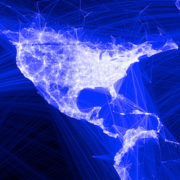2016 Visioning Activities

Sociotechnical Cybersecurity Workshop 1
/Information and Communications Technology (ICT) has taken a central role in modern society. Unfortunately, malicious hackers and cybercrime have become a stubborn and expensive part of the ICT landscape. This has made providing cybersecurity a defining challenge for our era. Many strategic plans and National Academies of Sciences (NAS) studies have been written, and billions of dollars have been spent on the development and deployment of innovative cybersecurity solutions, but our network infrastructure, devices and organizations are increasingly insecure against threats.

Discovery and Innovation in Smart and Pervasive Health
/There is a desire to update the strategic research priorities informing investments in Smart Health research. Workshops in 2009 and 2012, partially hosted by the CCC, resulted in two white papers that informed programs such as the joint NSF and NIH Smart and Connected Health research program.

Cyber-Social Learning Systems Workshop 2
/Over the last decade, we have made enormous progress establishing scientific and engineering principles for cyber-physical systems (CPS). The next major frontier in science and engineering research and development, is the integration of cyber-physical with human and social systems and phenomena at all scales. Closing the loop from sensing to performance at all scales will give rise to cyber-social learning systems. This was part of a workshop series – view the series page.

Nanotechnology-Inspired Information Processing Systems of the Future
/Traditionally, computing systems have relied on scaling of transistor feature sizes for enhancing energy efficiency, throughput, performance, functional density, and most importantly cost (per component). Unfortunately the benefits gained from further scaling are greatly reduced. Future computing systems need to overcome the fundamental efficiency‐robustness barrier in order to continue to have societal‐scale impact. A key requirement is to envision this future as a convergence of three domains – emerging applications, alternative computational models and architectures, and beyond CMOS nanofabrics. A compelling vision of future computing systems would be one where the application level metrics are accounted for during design, where statistical, hysteretic, and other attributes of nanoscale fabrics could be exploited for designing computational primitives such as nanofunctions required by these applications, and where alternative models for computing could be leveraged to design systems meeting application‐level requirements. Achieving this vision calls for a journey from systems‐to‐nanofabrics and back.

Cyber-Social Learning Systems Workshop 1
/Over the last decade, we have made enormous progress establishing scientific and engineering principles for cyber-physical systems (CPS). The next major frontier in science and engineering research and development, is the integration of cyber-physical with human and social systems and phenomena at all scales. Closing the loop from sensing to performance at all scales will give rise to cyber-social learning systems. This was part of a workshop series – view the series page.

Architecture 2030 Workshop @ ISCA 2016
/The goal of this first Architecture 2030 Workshop was to kick off a new round of visioning activities in a public forum, on where our constituents believe the field is headed, what challenges and opportunities exist, and how we can continue to communicate our impact beyond our discipline. The workshop was mostly discussion based, with breakout sessions and report-outs. The workshop was Sunday, June 19th, 2016.

Privacy by Design – Catalyzing Privacy by Design
/Frontiers in Regulation and Management. This workshop reviewed the lessons from workshops #1-3 and examined how existing regulatory models, along with other factors, shaped organizations’ understanding of privacy problems, approaches, and solutions. Building on workshop-generated insights on the strengths and limitations of current approaches—in terms of concepts, incentives, actors—the workshop considered how well regulatory models respond to privacy-by-design challenges, and identified open research questions.
This was part of a series of workshops - view the series page






